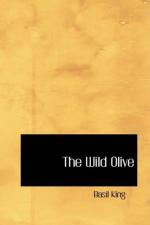The revolt of his self-respect was on the eve of bringing this phase of his existence to an end when the low farce turned into tragedy. Old Chris Ford was found dead in his bed—shot in his sleep. On the premises there had been but three persons, one of whom must have committed the crime—Norrie Ford, and Jacob and Amalia Gramm. Jacob and Amalia Gramm had been the old man’s servants for thirty years. Their faithfulness put them beyond suspicion. The possibility of their guilt, having been considered, was dismissed with few formalities. The conviction of Norrie Ford became easy after that—the more respectable people of the neighborhood being agreed that from the evidence presented no other deduction could be drawn. The very fact that the old man, by his provocation of the lad, so thoroughly deserved his fate made the manner in which he met with it the clearer. Even Norrie Ford’s friends, the hunters and the lumbermen, admitted as much as that, though they were determined that he should never suffer for so meritorious an act as long as they could give him a fighting chance for freedom.
The girl listened to Ford’s narrative with some degree of interest, though it contained nothing new to her. She could not have lived at Greenport during the period of his trial without being familiar with it all. But when he came to explanations in his own defence she followed listlessly. Though she leaned back in her chair, and courteously stopped painting, while he talked so earnestly, the light in her eyes faded to a lustreless gleam, like that of the black pearl. His perception that her thoughts were wandering gave him a queer sensation of speaking into a medium in which his voice could not carry, cutting short his arguments, and bringing him to his conclusion more hurriedly than he had intended.
“I wanted you to know I didn’t do it,” he finished, in a tone which begged for some expression of her belief, “because you’ve done so much to help me.”
“Oh, but I should have helped you just the same, whether you had done it or not.”
“But I suppose it makes some difference to you,” he cried, impatiently, “to know that I didn’t.”
“I suppose it would,” she admitted, slowly, “if I thought much about it.”
“Well, won’t you think?” he pleaded—–“just to oblige me.”
“Perhaps I will, when you’re gone; but at present I have to give my mind to getting you away. It was to talk about that that I came this morning.”
Had she wanted to slip out of giving an opinion on the subject of his guilt, she could not have found a better exit. The means of his ultimate escape engrossed him even more than the theme of his innocence. When she spoke again all his faculties were concentrated into one keen point of attention.
“I think the time has come for you to—go.”
If her voice trembled on the last word, he did not notice it. The pose of his body, the lines of his face, the glint of his gray eyes, were alive with interrogation.




